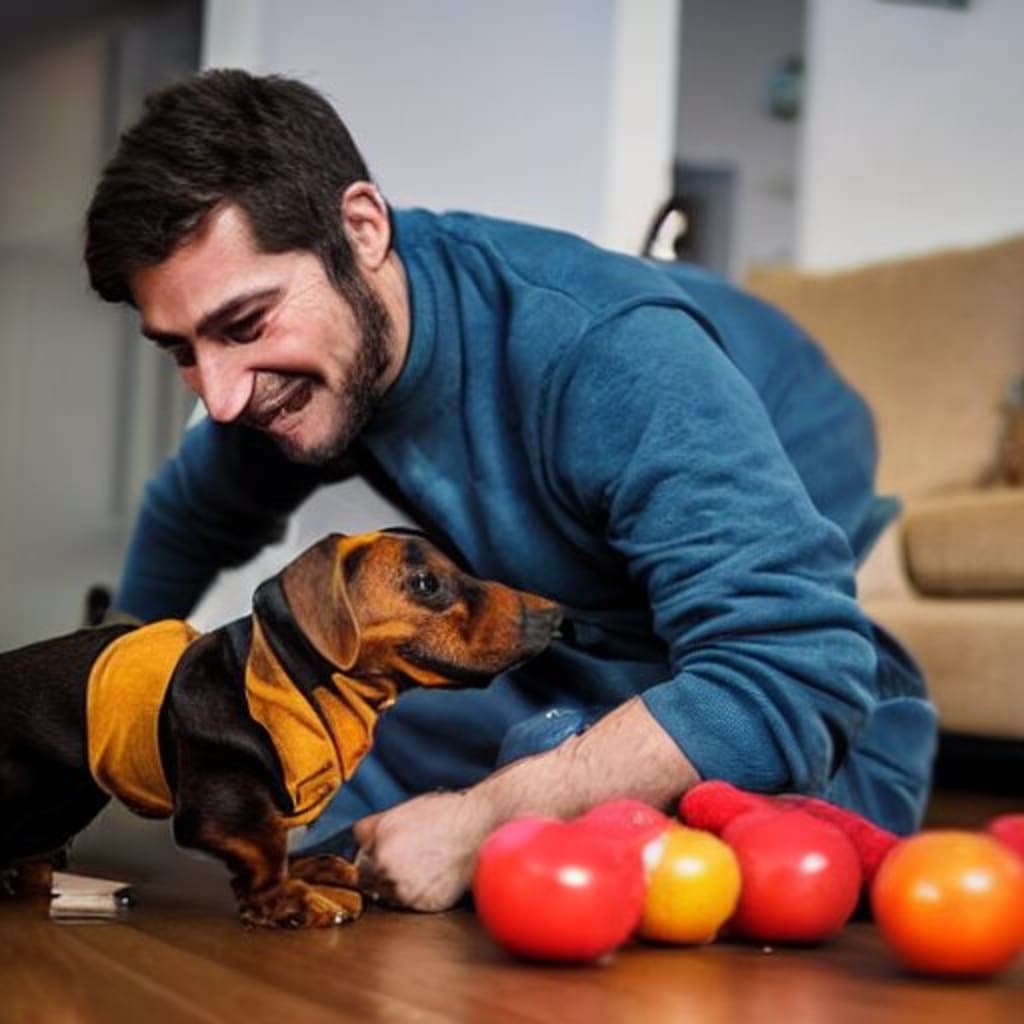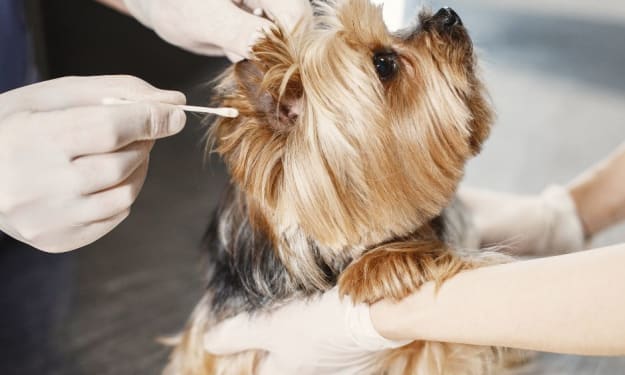How to Stop your Puppy from Biting.
Puppies bite and chew as a way to explore their environment and to play. It is a natural behavior that can be difficult to stop, but it is important to teach your puppy not to bite because it can cause injury to people and other animals.

Puppies bite and chew as a way to explore their environment and to play. It is a natural behavior that can be difficult to stop, but it is important to teach your puppy not to bite because it can cause injury to people and other animals. Here are a few tips to help you stop your puppy from biting:
Redirect their attention: When your puppy starts to bite, try to redirect their attention to a chew toy or a treat. This can help teach them that biting is not an acceptable behavior and that there are other things they can do with their mouth.
Use a firm "no": When your puppy bites, use a firm and confident "no" to let them know that biting is not acceptable. Be sure to use a consistent and clear command so that your puppy understands what you mean.
Ignore the behavior: If your puppy continues to bite despite your efforts to redirect their attention, try ignoring the behavior. Walk away or turn your back on your puppy until they calm down. This can help teach them that biting leads to a lack of attention, which is not what they want.
Reward good behavior: When your puppy is not biting, be sure to praise and reward them with treats and attention. This can help reinforce the behavior you want to see and encourage your puppy to continue being well-behaved.
It may take time and patience to teach your puppy not to bite, but with consistent training and positive reinforcement, they will eventually learn that biting is not an acceptable behavior.
Use a spray bottle: Keep a spray bottle filled with water near you when you are interacting with your puppy. If they start to bite, give them a quick spritz of water and immediately say "no." This can help interrupt the behavior and teach them that biting is not acceptable.
Use a time-out: If your puppy continues to bite despite your efforts to redirect their attention or ignore the behavior, consider using a time-out. Place your puppy in a crate or a separate room for a short period of time (a few minutes) to give them a chance to calm down.
Train your puppy to be gentle: Use treats and praise to teach your puppy to be gentle when they are playing with people. For example, you can teach them to "shake" hands or to give kisses gently. This can help them understand that they need to be gentle with their mouth when interacting with people.
Provide plenty of chew toys: Make sure your puppy has plenty of appropriate chew toys to play with. This can help prevent them from biting on inappropriate objects, such as your hands or feet.
Discourage rough play: Avoid rough play with your puppy, such as wrestling or tug-of-war, as this can encourage biting. Instead, focus on playing games that involve fetching or other gentle activities.
Seek professional help if needed: If you are having difficulty stopping your puppy from biting, consider seeking the help of a professional dog trainer or behaviorist. They can provide additional guidance and support to help you teach your puppy not to bite.
- Why Does Your Puppy Bit you?
There could be several reasons why your puppy is biting you. Puppies explore the world around them with their mouths, and biting is a natural behavior for them. They may be teething and looking for things to chew on, or they may be playing and trying to engage you in a game. It's also possible that your puppy is biting as a form of communication, to let you know that they want something or that they are feeling anxious or threatened. It's important to remember that puppies are still learning, and they may not understand that biting is not acceptable behavior. To help prevent your puppy from biting, you can try providing them with plenty of chew toys and teaching them appropriate ways to play and interact with others. It's also a good idea to seek guidance from a veterinarian, a professional trainer, or a behaviorist to learn more about how to address this behavior.
- Do puppies bite when they're angry or scared?
Puppies may bite when they are feeling threatened or scared as a way to defend themselves. They may also bite if they are feeling anxious or stressed, or if they are experiencing pain or discomfort.
About the Creator
Content Plus
Welcome to my profile! I am a writer with a passion for arts, entertainment, and lifestyle.So if you're interested in any of these subjects, I hope you'll join me on this journey of discovery and exploration!Startriting






Comments
There are no comments for this story
Be the first to respond and start the conversation.